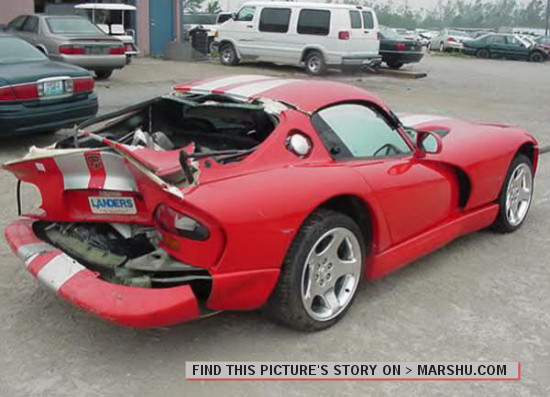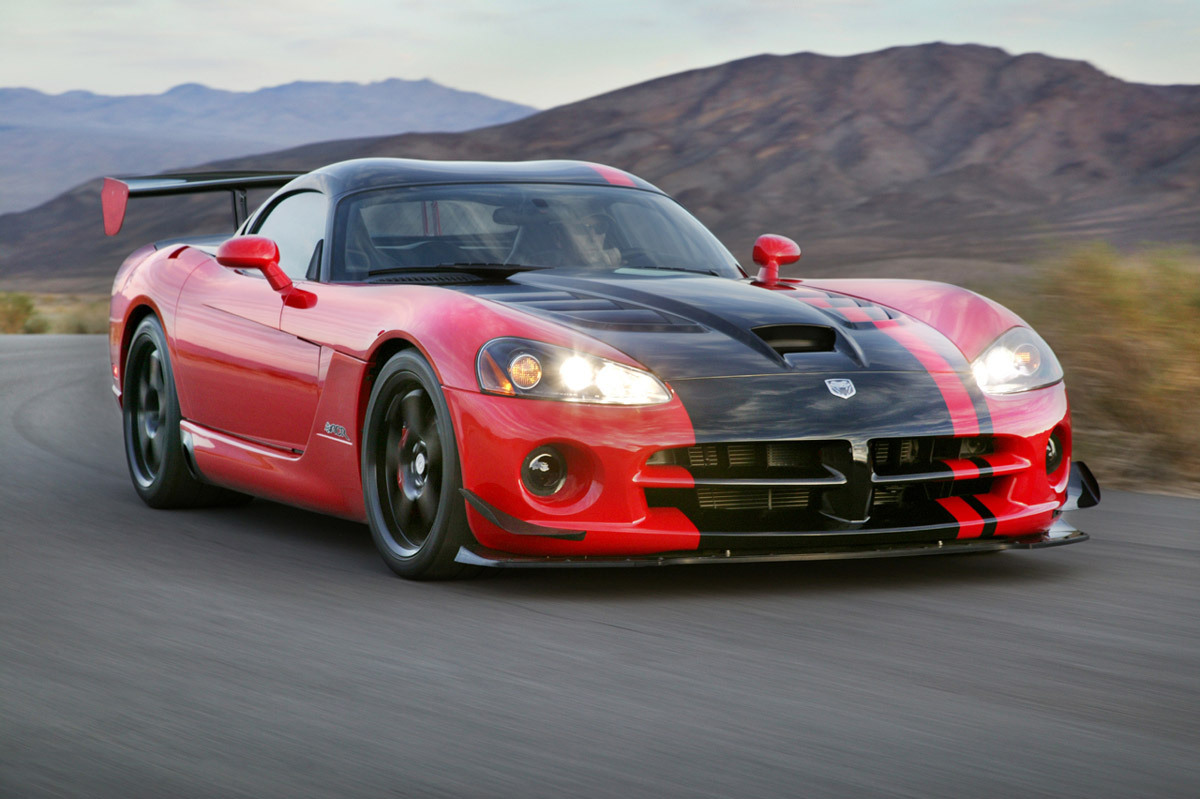






The only bodywork that the Dodge Viper SRT10 Coupe shares with the Convertible is the front fascia and fenders, hood and doors. In addition to the new canopy and decklid, the 2006 Dodge Viper SRT10 Coupe has a special windshield surround, door side glass, rear fascia, quarter panels, taillights, and color scheme. Dodge Viper SRT10 Coupe-unique interior pieces also include various weatherstrip pieces, headliner, carpet and trim panels.
The decklid for the Dodge Viper SRT10 Coupe was designed for customer convenience as well as structural integrity. The decklid opening is deeply integrated into the rear fascia, which offers a low lift-over height for stowing cargo. Gas struts hold the decklid in place when open; when closed, the decklid is secured with a lock that meets federal regulations for latch safety. Underneath that decklid are an extra 4 cubic feet of trunk space over the ragtop, providing a total of 6.25 cubic feet.
The 2006 Dodge Viper SRT10 Coupe design also took some of its cues from Dodge Viper’s heritage. For example, the Center High-Mounted Stop Light (CHMSL) on the decklid, although all-new for 2006, looks similar to the “snake-head” design on the Viper GTS of 1996-2002.
The 2006 Dodge Viper SRT10 Coupe will be available initially in Viper Blue with twin Stone White racing stripes, harkening back to one of the most popular Vipers ever, the 1996 Dodge Viper GTS.
The "double-bubble" roofline does not just provide more headroom; it gives space for helmet clearance. The roof and headliner structure also offer room to accommodate a safety cage, while maintaining as much headroom as possible.
The body is built from a backbone tubular space frame with separate cowl structure with SMC and RIM body panels, aluminum sills, RIM front and rear fascias with composite impact beams. It's a front-engine, rear-drive car.










0 comments:
Post a Comment